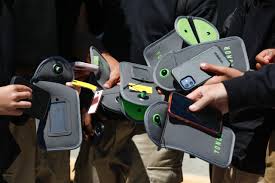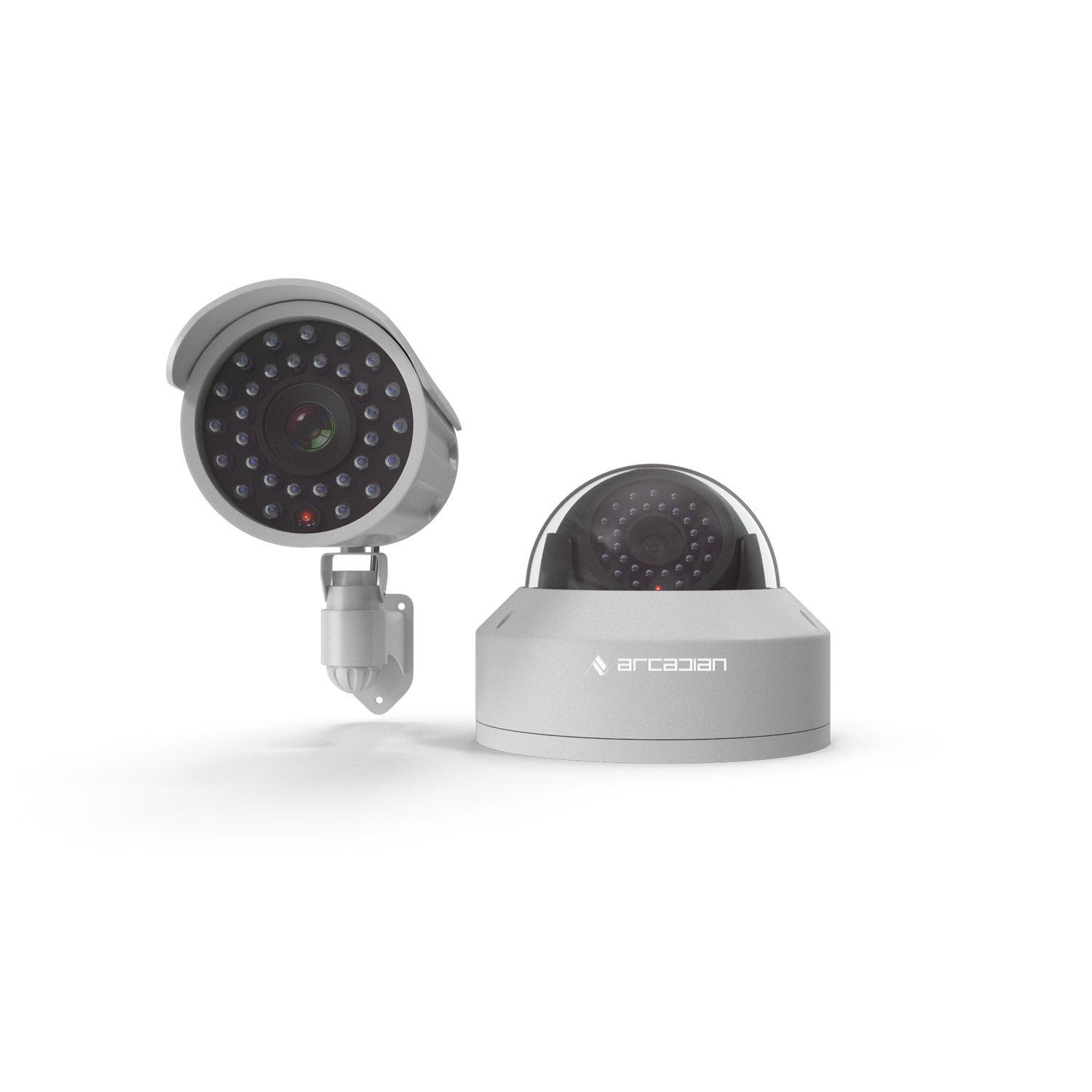Why More Schools Are Locking Away Phones — And Why It’s a Smart Move
Distraction is the new pandemic in our classrooms — and it’s not caused by teachers or textbooks. It’s in our students’ pockets. Phones, earbuds, and smartwatches have become an irresistible temptation, pulling attention away from lessons and peers.

- Introduction
- The Rise of Phone Pouch Policies in U.S. Schools
- Why Phones Became Such a Challenge in Schools
- The Psychological Case for Phone-Free Schools
- Success Stories from the Field
- Addressing Concerns
- The Wider Educational Context
- Global Comparison
- Why This Is a Positive Step Forward
- Quick Summary
- Conclusion
Introduction
In 2025, the conversation about phones in schools has reached a tipping point. For years, educators debated: should we ban phones, allow them freely, or strike a middle ground? But now, across the United States, a growing number of schools are taking decisive action: locking student phones away in magnetically sealed pouches for the entire school day.
This YouTube report highlights one such case — Danville High School in Illinois — where Principal Jacob Bretz explained the logic:
“We were just running into the constant battle — that temptation of the phone being accessible in the pocket, wondering if I have a message, feeling the notifications, and the urge to check them.”
Instead of leaving the battle to teachers, the school implemented a uniform policy: all phones, earbuds, and smartwatches go into pouches at the start of the day, and students can only unlock them when school ends.
This isn’t just about control — it’s about creating an environment where students can focus, connect, and thrive without the constant pull of a digital screen.
The Rise of Phone Pouch Policies in U.S. Schools
What started as an experiment in a handful of districts is spreading nationwide. The system — often powered by Yondr pouches or similar technology — is straightforward:
-
Students place their devices inside a pouch when they enter school.
-
The pouch locks magnetically and can’t be opened without a special unlocking base.
-
At dismissal, students unlock their pouches and get their devices back.
This approach avoids messy debates about confiscation, inconsistent enforcement, and students sneaking phones during lessons.
Adoption Trends:
-
In 2015, fewer than 2% of U.S. schools had a phone pouch policy.
-
By 2023, more than 2,000 schools across 40 states had adopted it (source: Yondr).
-
In 2024–2025, districts in California, Texas, New York, and Illinois expanded programs, citing reduced distractions, improved grades, and better social behavior.
Why Phones Became Such a Challenge in Schools
Phones in classrooms are more than just a nuisance — they’re an attention trap.
-
Constant Notifications: Pew Research (2022) found that 95% of teens have access to a smartphone, and 67% receive notifications during class.
-
Social Media Pressure: Platforms like TikTok, Instagram, and Snapchat thrive on short dopamine bursts, conditioning students to check feeds dozens of times per day.
-
Multi-Tasking Myth: A Stanford University study (2019) showed that people who constantly multitask on digital devices perform worse in memory, focus, and comprehension than those who don’t.
The result? Teachers often spend more time policing phones than teaching — leading to frustration on both sides.
The Psychological Case for Phone-Free Schools
Psychologists and educators increasingly argue that phone-free learning environments are essential for student development.
1. Attention Recalibration
The human brain wasn’t built for endless notifications. Neuroscientist Dr. Gloria Mark (author of Attention Span) notes that it now takes an average of 23 minutes to refocus after a digital interruption. In classrooms, that’s disastrous.
2. Stress & Mental Health
A 2023 Journal of Adolescent Health study found that teens who spend more than 3 hours per day on social media are twice as likely to report depression or anxiety symptoms. A school-wide phone policy reduces that exposure during learning hours.
3. Social Connection
Face-to-face interaction is critical for emotional intelligence. Without phones, schools report increased conversations, peer bonding, and reduced incidents of cyberbullying during school hours.
Success Stories from the Field
Danville High School, Illinois
Principal Bretz reported that after adopting phone pouches, disciplinary incidents dropped, and teachers noticed higher engagement levels.
San Mateo High School, California
In 2019, this Bay Area school banned phone use during class through pouches. Within one semester, they reported:
-
35% reduction in classroom disruptions.
-
Students were more engaged in group discussions and activities.
-
Teachers overwhelmingly supported continuing the policy.
Brooklyn, New York
Several public schools introduced phone pouch systems in 2022. Parents initially resisted, worried about emergencies. But over time, surveys showed 72% of parents supported the program, citing better homework completion and improved focus.
Addressing Concerns
“What if there’s an emergency?”
-
Staff, landlines, and intercom systems remain available.
-
Administrators can unlock pouches instantly if needed.
-
Parents can still contact the front office directly.
“Isn’t this too restrictive?”
-
Students regain full phone access after school.
-
This isn’t about banning technology — it’s about balancing it.
-
Like dress codes or attendance rules, it creates a consistent standard.
“What about digital learning tools?”
-
Laptops, tablets, and school-issued devices remain in use.
-
The goal isn’t to ban technology but to separate learning tools from distractions.
The Wider Educational Context
This trend fits into broader educational shifts:
-
Digital Wellness Initiatives: Schools are teaching responsible tech use, not just enforcing bans.
-
Mental Health Priorities: With teen anxiety and depression rates at record highs, phone-free days support wellness.
-
Equity in Education: Reducing phone use levels the playing field, since not all students have the latest devices or unlimited data plans.
Global Comparison
-
France: In 2018, France introduced a nationwide ban on phones in primary and middle schools. Results showed better academic performance and reduced cyberbullying incidents.
-
Australia: Multiple states, including Victoria, enforce phone bans during school hours. Educators reported improved student focus and engagement.
-
UK: The Department for Education recently recommended phone-free classrooms, though policies vary by school.
Why This Is a Positive Step Forward
This isn’t about punishment — it’s about building healthier habits.
-
Students learn to manage without constant access to their devices.
-
Teachers regain control of the classroom.
-
Parents gain peace of mind, knowing their kids aren’t glued to TikTok during algebra.
Most importantly, it’s a reminder that schools are places for learning, not scrolling.
Quick Summary
-
More U.S. schools are adopting phone pouch policies to reduce distractions.
-
Devices stay locked away during the school day and are returned at dismissal.
-
Benefits include better focus, stronger social connections, and reduced stress.
-
Concerns about safety and restriction are addressed with practical safeguards.
-
This movement aligns with global trends in education and wellness.
Conclusion
Phones aren’t the enemy — distraction is. By locking devices away, schools aren’t depriving students of technology — they’re giving them something far more valuable: the chance to focus, engage, and grow.
In the years to come, the question won’t be whether phone pouches are too strict. It will be: why did it take us so long to recognize that attention is the most precious resource in education?
👉 Watch the full report here: YouTube Video

Security is like insurance—until you need it, you don’t think about it.
But when something goes wrong? Break-ins, theft, liability claims—suddenly, it’s all you think about.
ArcadianAI upgrades your security to the AI era—no new hardware, no sky-high costs, just smart protection that works.
→ Stop security incidents before they happen
→ Cut security costs without cutting corners
→ Run your business without the worry
Because the best security isn’t reactive—it’s proactive.







